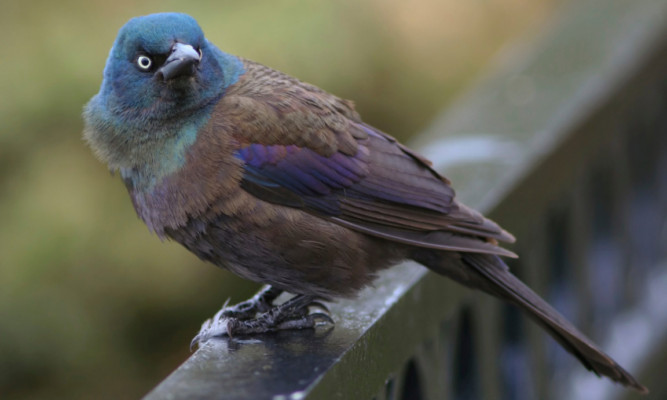
URBAN blackbirds have finally proved what we all suspected city living is more stressful, and it’s getting worse.
In an intriguing study of city blackbirds and birds who dwell in rural areas, biologists found that the “biological rhythms” of city-dwellers are very different, and constantly changing as cities get busier.
Researchers from the UK and Germany got together and captured adult male blackbirds in the city of Munich.
They were then transported to the German countryside, and their behaviour closely monitored.
In comparison with the blackbirds already living in the wilds, the city birds woke half an hour earlier each day, and at night were still awake for an extra nine minutes.
The boffins say this proves that city-dwellers have faster, but less robust, internal clocks than their rural cousins.
Of course, most farmers have to rise long before your typical person in London, Edinburgh or Cardiff!
But the research leads to the conclusion that city life upsets natural biological rhythms severely, which can lead to health issues and even reduced lifespan.
Birds were equipped with lightweight radio-transmitters which monitored their levels of activity in the wild for 10 days, before they were recaptured.
They were then kept in light-proofed, sound-insulated chambers, and were observed under constant conditions, without any environmental information that could serve as a “clock”.
In this way, each bird’s own, internal rhythm could be tested. Once the tests were complete, the birds were returned to the wild.
Dr Barbara Helm, of the University of Glasgow’s Institute of Biodiversity, Animal Health and Comparative Medicine, says: “The daily cycles of activity and rest are based on biological rhythms which have evolved as an adaptation to the rising and setting of the sun.
“We found the rhythms of urban birds in the wild differ significantly from their forest counterparts. There seems to be a different beat to city life. City clocks were also less persistent, especially in the business district.”
And there is no denying the human link, according to Dr Helm, who adds: “Previous research has suggested strong links in humans between disrupted sleep patterns and an increased incidence of depression and diseases, including obesity and some types of cancers.
“Our work shows for the first time that when sharing human habitats, a wild animal species has a different internal clock.
“We’d be keen to find out the costs and benefits of modifying biological rhythms in blackbirds and other animals commonly found in our cities.
“This may help us to better understand the challenges of coping with urban life.”

Enjoy the convenience of having The Sunday Post delivered as a digital ePaper straight to your smartphone, tablet or computer.
Subscribe for only £5.49 a month and enjoy all the benefits of the printed paper as a digital replica.
Subscribe